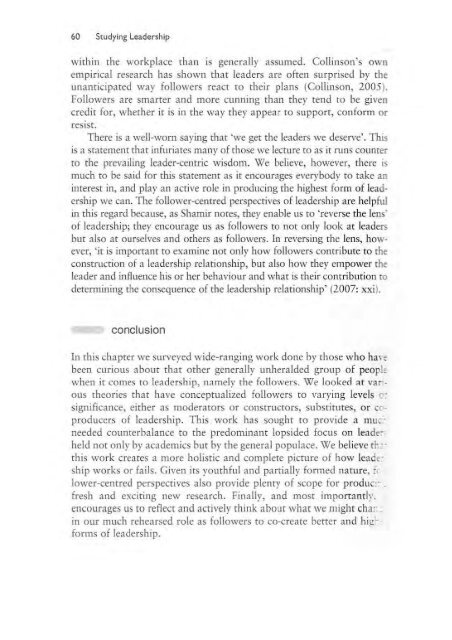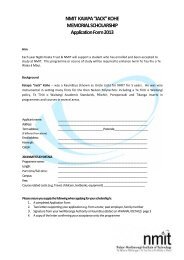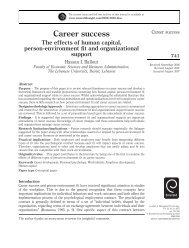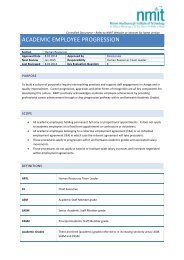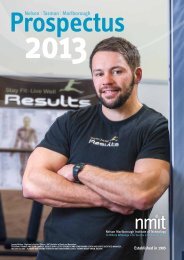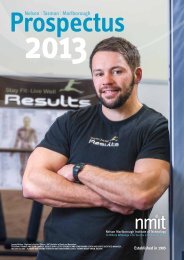Jackson Parry - Leadership, Chp 3, 41-60.pdf
Jackson Parry - Leadership, Chp 3, 41-60.pdf
Jackson Parry - Leadership, Chp 3, 41-60.pdf
- No tags were found...
You also want an ePaper? Increase the reach of your titles
YUMPU automatically turns print PDFs into web optimized ePapers that Google loves.
60 Studying Lead ershipwithin the workplace tha n is generally assumed. Coll inson's ownempirical research has shown that leaders are ohen surprised by theunanticipated way fo llowers react to their plans (Collinson, 2005 ).Followers are smarter and more cunning than they tend to be givencredit for, whether it is in the way they appear to support, confo rm orresIst.There is a well-worn saying that 'we get the leaders we deserve'. Thisis a statement that infuriates many of those we lecture to as it runs counterto the prevailing leader-centric wisdom. We believe, however, there ismuch to be said fO f this statement as it encourages everybody to take aninterest in, and play an acti ve role in produci ng the highest fOfm of leadershipwe can. The follower-centred perspecti ves of leadership are hel pfulin this regard because, as Shamir notes, they enable us to 'reverse the lens'of leadership; they encourage us as followers to nOt only look at leadersbut also at ourselves and others as followers. In reversing rhe lens, however,'it is important to examine nor only how folJowers contri bute to theconstruction of a leade rs hip relario nship, but also how they empower theleader and infl uence his or her behaviour and what is theif contribution todetermining the consequence of the leadershi p relationship' (2007: xxi).conclusionIn this chapter we surveyed wide-ranging work done by those who hH ebeen curious about that other generally unheralded group of peopl:when it comes to leadership, nameiy the followe rs. \YJe looked at varoustheories that have conceptualized followers to varying levels c:significance, either as moderators or constructors, substitutes, or CC'producers of leadership. This work has sought to provide a mu.:needed coumerbalance to the predominant lopsided focus on leade:held not only by academics bur by the genera l populace. We bel ieve t h~·this work creates a more holistic and complete picture of how l ead c~ship works or fails. Given its youthful and partially formed nature, fclower-centred perspectives also provide plenty of scope for produc: :- .fresh and exciting new research. Finally, and most importantly.encourages u) to reflect and actively think abour what we might char _in our much rehearsed role as followers to co-create better and h ig ~forms of leadership.


